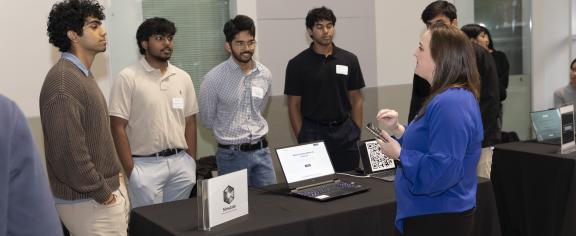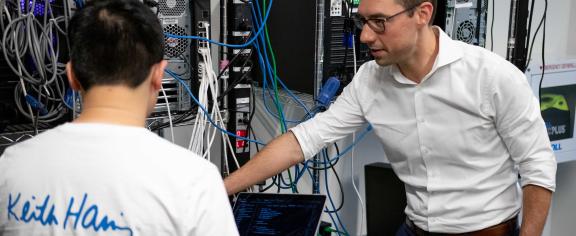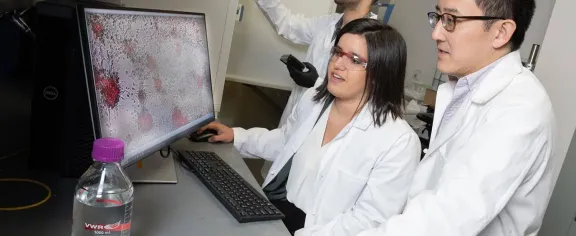2025-11-03
The College of Computing named Professor Rich Vuduc as director of the Center for Scientific Software Engineering (CSSE). The Georgia Tech hub is dedicated to building reliable, high-performance software for scientists.
2025-11-24
Three Georgia Tech faculty members received Google Academic Research Awards to study how to make AI safer.
2025-12-10
Yunan Luo is the recipient of an NSF Faculty Early Career Development (CAREER) award to use artificial intelligence to solve the protein annotation inequality problem.
2026-01-05
This is the Institute’s best ranking in the National Science Foundation’s annual survey.
2025-12-16
From zero to working prototype in just four months, students in the College of Computing’s new entrepreneurial Junior Design Capstone tackle real-world problems with guidance from startup mentors.
2025-12-11
Divan, Raychowdhury Named National Academy of Inventors Fellows
2025-12-03
With the help of a contract award for up to $12 million from ARPA-H, a team of researchers led by the School of Cybersecurity and Privacy at will begin developing an advanced cybersecurity platform to protect hospitals.
2025-11-24
By uniting expertise and resources, Georgia’s leading institutions are creating practical solutions to improve health outcomes across the state.
2025-11-20
Georgia Tech has been ranked 7th in the world in the 2026 Times Higher Education Interdisciplinary Science Rankings
2025-11-19
Georgia Tech researchers are using AI to quickly train exoskeleton devices, making it much more practical to develop, improve, and ultimately deploy wearable robots for people with impaired mobility.









